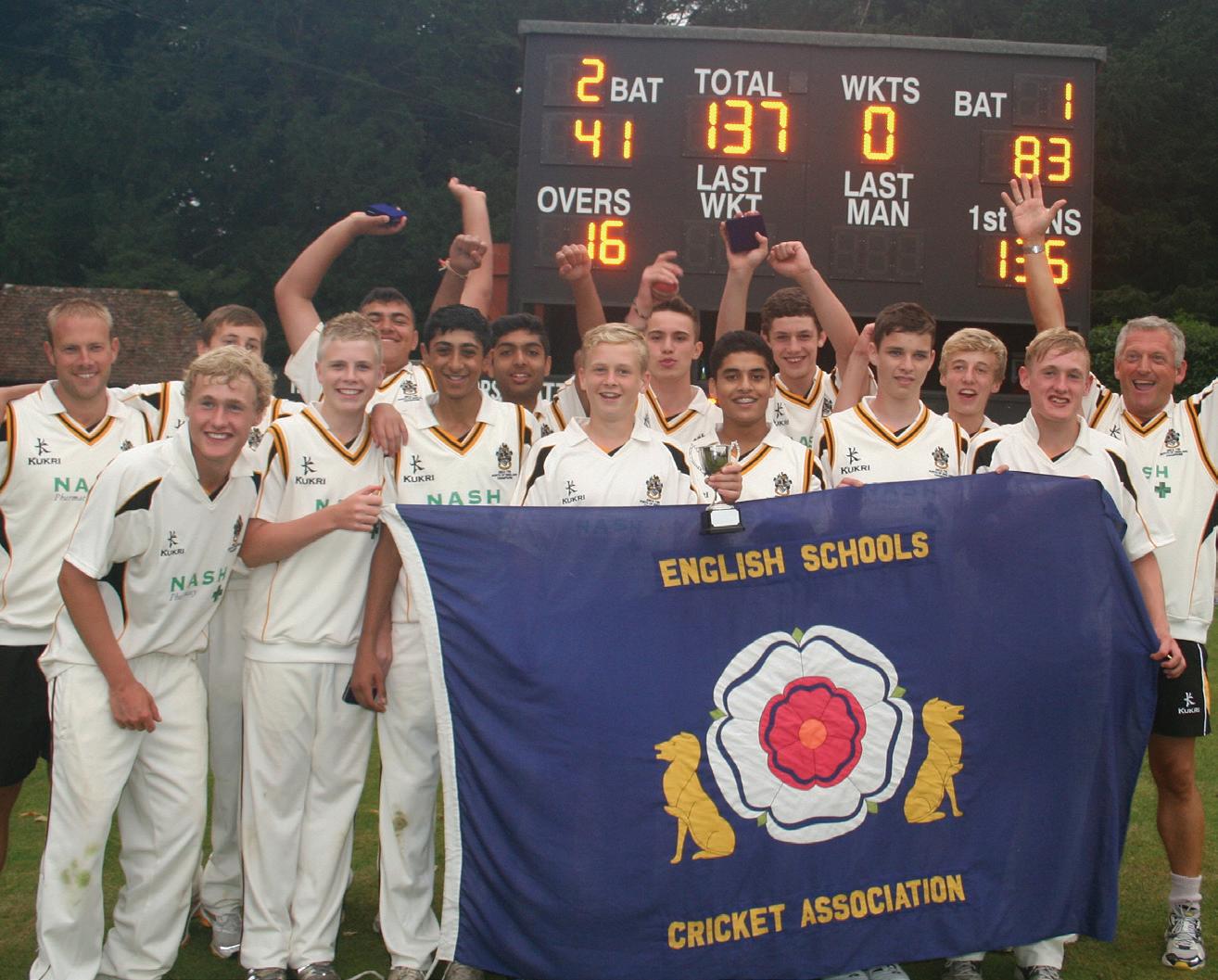
7 minute read
Changing Schools is challenging
Schools Changing schools is challenging Moving to secondary school can cause lasting problems
In the last issue of Conference & Common Room, Dr Mark Whalley, an experienced secondary school teacher, wrote persuasively about the benefits of three to sixteen schools, one of which he now leads. In his experience, delaying the change of schools until sixteen could avoid a great deal of early teenage angst. An authoritative study from GL Assessment backs up this view.
Children’s positive attitudes to school not only decline once they move from primary to secondary school, but keep on falling for two or three years after they make the transition, according to one the largest-scale studies ever to look at the problem.
Researchers have long known that moving schools at age 11 causes problems for significant numbers of children, but the survey by GL Assessment, based on data from almost 32,000 children in England and Wales, has found that the problems persist in Years 8 and 9 as well as Year 7.
While a whole host of factors come into play at this point in a child’s development – hormones, friendships, growing up, taking control – the transition to secondary school marks a significant change for students and it is at this point that we begin to see a notable decline in student attitudes.
The study, from the leading provider of formative assessments to UK schools, looked at children’s feelings about school and teachers as well as their attitudes to themselves as learners – their confidence, work ethic and how prepared they felt themselves to be, for instance. It found that the biggest decreases in children’s positive attitudes were towards schools, teachers and attendance. The score for children who feel good about school declines from 94 per cent in Year 3 to 84 per cent in Year 9. Positive attitudes towards teachers fall from 93 to 84 per cent and towards attendance drops from 90 to 82 per cent over the same year groups. The biggest declines in all these factors occur after Year 7 and not before.
The proportion of children who think the rules in school are fair declines from 94 per cent in Year 3 to 86 per cent in Year 9. Those who say they are bored at school increases from 19 per cent in Year 3 to 32 per cent in Year 9, and the number of children who say they like their teacher falls 10 percentage points between Years 3 and 9. The fall isn’t precipitous, but it equates to some 70,000 students in each year group who have a more negative perception of teachers.
Attendance, too, becomes more of an issue for children the older they become. The proportion of students who say they would rather be somewhere else than in school rises from a quarter (25 per cent) to a third (33 per cent) between Years 3 and 9.
Greg Watson, Chief Executive of GL Assessment, said the findings helped shed light on why so many children found the transition from primary to secondary difficult. “Pupil attitudes to learning and school are crucial and we simply haven’t been paying them enough attention. We need to understand what happens to children’s confidence and self-perception as learners when they change schools, and teachers and parents need to know what can be done to remedy any problems.”
The continued decline in children’s positive attitudes well into secondary was revealing, he said. “Parents and teachers won’t be surprised that significant numbers of children find the move to ‘big’ school difficult. But I suspect few of them will have realised just how long attitudinal problems can persist. That should worry us all.”
Some attitudinal factors are remarkably stable over time. Self-regard as a learner, for instance, is 76 per cent in Year 3 and remains at 76 per cent in Year 9. General work ethic is 85 per cent in Year 3 and only falls slightly to 84 per cent in Year 9. And not all metrics show a decline. Contrary to received wisdom, students tend to respond well to the increased curriculum demands as they get older. In answer to the question, ‘Do you get anxious when you have to do new work?’ the percentage of children saying they do fell by half between Years 3 and 9, from 35 per cent to 18 per cent. At the same time, the proportion saying the work they have to do in class is too easy declines from 43 per cent in Year 3 to 14 per cent in Year 9.
Sir John Dunford, Chair of Whole Education and the National Pupil Premium Champion from 2013 to 2015, said: “Moving from one school to another is a stressful experience. There is the anxiety of moving to a much larger school; of
Triple Top Ten


Lancaster University is proud to announce that it has been placed 9th in the Times and Sunday Times Good University Guide, 9th in the Complete University Guide and 8th in the Guardian. All of which means that Lancaster is one of the few universities to be ranked in the top ten of all three of the UK’s major university league tables.
To fi nd out why, visit Lancaster.ac.uk
having to find your own way round without getting lost; of being in classes where you will know few, if any, of the other children; of the presence of lots of much older children; of having more than ten teachers instead of one; of the demands of increased homework – and all this at an age when the complexities of personal development can weigh heavily.”
“Attitudes are a good predictor of engagement,” he adds. “If pupils are engaged and positive about themselves and their learning, they are more likely to be successful. It is particularly important for primary and secondary schools to listen to the voice of their pupils during this time.”
The trends from this study are reflected at Wakefield City Academy, which sees a drop in students’ feelings about school from Year 7 to Year 9, while some attitudes, particularly students’ perceived learning capability, general work ethic and response to curriculum demands, remain stable.
Dan Styles, the Trust Improvement Partner at Wakefield Academies Trust, is very aware of these attitudinal fluctuations and the school has introduced a number of interventions to limit the dip as much as possible. “Attitudinal surveys have provided us with some excellent insights into our students’ feelings and opinions about school. Sometimes students who on the surface appear the most secure, resolute and resilient can be masking concerns that could affect their potential to achieve. Armed with attitudinal data, we can support these students specifically in areas of self-regard and dealing with stress.”
A free copy of the GL Assessment report Pupil Attitudes to
Self and School is available at http://bit.ly/pupilattitudes
&THERE HERE
If you have news of topical interest, however brief, for ‘Here and There’, please email it to Tom Wheare at tom.wheare@gmail.com. Items should not exceed 150 words. Good colour photographs are also welcome.
School’s pride as Haseeb plays starring Test role


Fifteen months ago Haseeb Hameed was picking up his A level results from Bolton School; on 9 November, he opened the batting for England against India in the first Test Match in Rajkot. He is England’s fifth youngest Test player, their youngest opening batsman and the first Lancashire opening batsman to play for England in 21 years. After scoring 31 in England’s first innings, he scored 82 in their second, in an opening partnership of 180.
His incredible summer also included him winning not only Lancashire’s Player of the Year award, but also recognition at the national Asian Cricket Awards, where he won the Professional Young Player of the Year award for the second time.
Head of Cricket at Bolton School, Andy Compton, said, “The first time I saw him was in our indoor nets in the Spring Term when he was in Year 8 and we knew then we had a very special talent on our hands. His father, Ismail, has been the largest influence by far on his career and has been his mentor throughout. Making his debut in India could not be more appropriate as that is where his parents are from.”
Headmaster Philip Britton said, “We are terrifically proud of him as a school. We found a boy who was academically able enough to thrive in our school but also had tremendous sporting promise, and we knew we would be a good environment where he could realise that promise and have a good education.”










